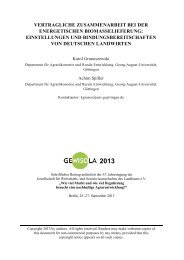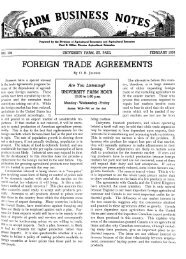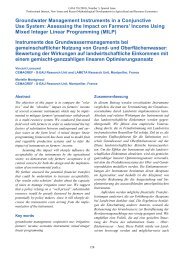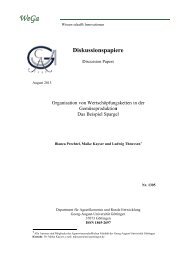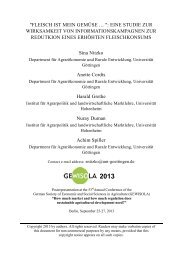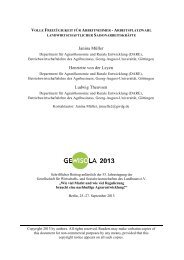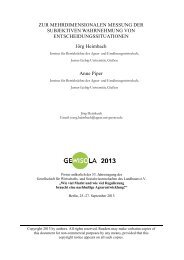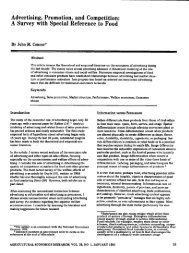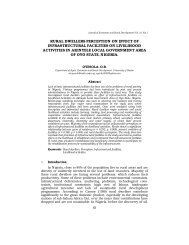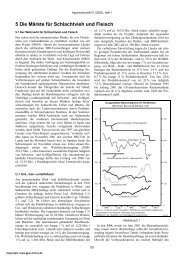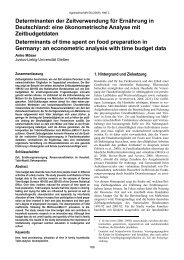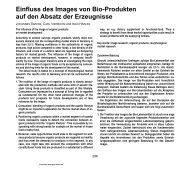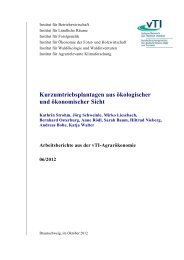District Institutes of Education and Training - Teacher Education
District Institutes of Education and Training - Teacher Education
District Institutes of Education and Training - Teacher Education
You also want an ePaper? Increase the reach of your titles
YUMPU automatically turns print PDFs into web optimized ePapers that Google loves.
<strong>District</strong> <strong>Institutes</strong> <strong>of</strong> <strong>Education</strong> <strong>and</strong> <strong>Training</strong>: A Comparative Study in Three Indian States<br />
Due to their parents’ weak economic condition in most <strong>of</strong> the rural areas the<br />
children are not able to achieve their education. As they are economically weak<br />
they go for labour work from their homes with their children <strong>and</strong> family. They<br />
come back after one month <strong>and</strong> sometimes the situation is such that they come<br />
after 3-4 months. In such a situation the child is not able to acquire the<br />
competencies. This mostly happens in rural areas because they are economically<br />
weak. On one h<strong>and</strong> the child remains absent for 1, 2, 3 months <strong>and</strong> the Saheb<br />
[<strong>of</strong>ficer] says ‘make the child achieve all the competencies’. In this condition<br />
how can the child be made to acquire the competencies?…if the child does not<br />
come to the school how will s/he acquire the competencies? (MP/T 038<br />
July 01).<br />
<strong>Teacher</strong>s object more to short-tem absenteeism, perhaps because it has greater dayto-day<br />
consequences than more permanent absence, <strong>and</strong> because it seems to them<br />
more avoidable. Their sympathetic reading <strong>of</strong> absenteeism, based on an<br />
underst<strong>and</strong>ing <strong>of</strong> economic hardship <strong>and</strong> the imperatives <strong>of</strong> subsistence, is <strong>of</strong>ten<br />
blurred by teachers’ sense that many parents do not care about their children’s<br />
education, <strong>and</strong> thus do not make sufficient effort to ensure that they attend school<br />
regularly.<br />
The environment in the rural area is not there. The people <strong>of</strong> the rural area are<br />
highly conservative. They have many bad habits like child marriage,<br />
gambling…when a child returns from school back home s/he goes back to that<br />
kind <strong>of</strong> environment <strong>and</strong> is moulded in that manner. The most a child takes part<br />
in the teachers’ activities is 3-5 hours. The child is influenced by the family<br />
environment, s/he is involved with the teacher <strong>and</strong> activities for some time,<br />
most <strong>of</strong> the rest <strong>of</strong> the time they get knowledge from their surroundings…So<br />
why not open a hostel…It is clear from this that if we want to give good<br />
education to the children they will have to be separated from their old<br />
conservative ideas <strong>and</strong> thoughts. Then only can we evaluate what talent rural<br />
children have, otherwise they won’t be able to be enlightened because their<br />
talents remain hidden behind their conservatism (MP/T 016 July 01).<br />
<strong>Teacher</strong>s <strong>of</strong>ten use words like ‘irresponsible’ <strong>and</strong> ‘careless’ when commenting on<br />
such parents, <strong>and</strong> their illiteracy is usually implicated in this equation too:<br />
Here the parents <strong>of</strong> weak children are always illiterate. It’s not like we don’t<br />
make any effort but these parents don’t underst<strong>and</strong> the importance <strong>of</strong> education<br />
(GUJ/ T 013 23.10.99).<br />
A minority <strong>of</strong> teachers relate parental illiteracy to problems in, for example,<br />
providing practical support with homework. But literacy itself is inflated to mean<br />
much more than literate or numerate; it also connotes a desirable <strong>and</strong> civilised state<br />
<strong>of</strong> human development, in contrast with the backward state <strong>of</strong> being illiterate<br />
42 DFID



